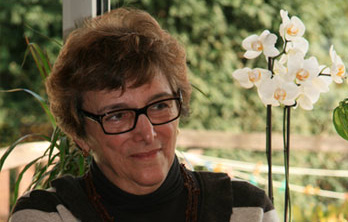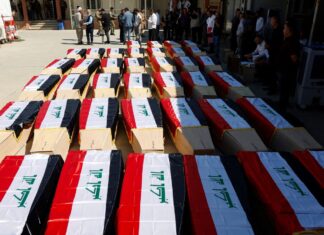By Muriel Mirak-Weissbach
Special to the Mirror-Spectator
BERLIN — On March 18, the Sunday edition of the Frankfurter Allgemeine Zeitung (FAZ) carried a bold banner headline: “Battle for Afrin Now Also in Germany.” That night, television news reporters announced the fall of Afrin. And the violence on German soil has not abated. Over recent years, German politicians have increased their warnings that the political conflict inside Turkey, between AKP loyalists and opposition groups, could spill over onto German soil. Now it is the warring parties in Syria whose proxies and sympathizers are clashing here.
Since Turkey began its military campaign, named “Operation Olive Branch,” targeting the Kurdish YPG on January 20, protests have spread across Germany, led by members of the Kurdish community, supported by Turkish and German opponents of the Ankara regime. Most of the demonstrations have been peaceful and without incident; others have turned violent, as clashes have erupted between sympathizers of the outlawed Kurdish Workers Party (PKK) and nationalist Turks. Whenever flags and posters of PKK leader Ocalan have been displayed, German police have intervened.
The closer Turkish tanks approached Afrin, the more exasperated the political confrontation in Germany became. Among the targets are not only Turkish institutions but also offices of German parties, seen as supporting the Erdogan campaign. According to the FAZ, acts of violence attributed to radical supporters of the Kurds have multiplied. These range from “balloons filled with paint being hurled at Christian Democratic Union (CDU) and Social Democratic Party (SPD) offices, windows of bank branches being smashed, police and army vehicles attacked, and arson attacks against Turkish cultural associations and mosques.” An Internet site called “fight4afrin” has been identified as the transmitter of messages urging violence, and the German authorities believe that German left-wing extremists have been heavily involved. The blog reports on actions against “Turkish fascism” being organized not only here but throughout Europe. It has been mooted, at the same time, that Turkish nationalist elements have staged attacks, in an attempt to discredit the opposition. It also cannot be excluded that right-wing extremists are exploiting the situation to target Turks.
In Germany incidents have been reported in various cities and federal states, among them, Berlin, Lower Saxony, Hamburg, Baden-Württemberg, Hesse and North Rhine Westfalia. According to the magazine Der Spiegel, the German authorities estimate that there are in Germany 14,000 supporters of the PKK, which has been outlawed since 1993.










